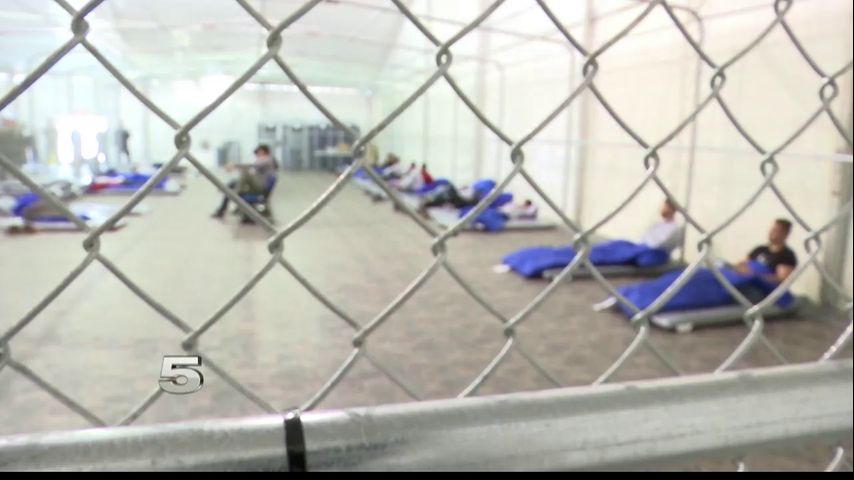Government Moves to Detain Migrant Families, Children Indefinitely
WESLACO - Families seeking asylum in the U.S. could soon see changes to their detention.
The Department of Homeland Security is considering holding families and unaccompanied children indefinitely, as a result of a final rule that will be posted Friday.
It will re-interpret the Flores Settlement agreement which limits the detention of children to twenty days.
DHS Acting Secretary Kevin McAleenan says, "the Flores Settlement Agreement is operationally outdated and does not respond to the current immigration crisis."
Instead, DHS wants to hold children and families indefinitely in "campus-like" detention centers.
"All of our three family residential centers offer a variety of indoor/outdoor recreation activities for children and adults. Indoor activities offer a variety of sports, group exercise classes, arts & crafts classes, movie nights and even seasonal holiday-themed activities," explained McAleenan.
They will also be equipped with medical staff, mental health counselors, educational and recreational opportunities.
One of the lead attorneys in the Flores Settlement, Peter Schey, explains this is not the first attempt at redefining the agreement.
"Under the Obama administration they had not issued regulations like this, but they did file a request with the court to modify the terms of the Flores Settlement. And that effort was rejected by the federal court. President Trump tried that again in June of 2018 and that was also rejected by the federal court," says Schey.
The strategy is different. DHS created the final rule they say previous administrations failed to do.
McAleenan says, "The Trump administration has established a new rule to respond to the realities of current immigration flows a rule based on the principle that families should remain together during immigration proceedings."
The attempt to detain families together is in contrast to family separation.
The government was ordered to stop the practices, yet it continues. In the Valley, the Texas Civil Rights Project tracks it.
Efren Olivarez, an attorney with TCRP, says, "We have interviewed over 690 separated families. In the last week, the numbers have gone down a little bit."
Olivarez says separation or family long-term detention aren't the only choices to ensure court appearances.
In 2016, under the Family Case Management Program, about 99-percent would shoe up to their hearings.
The court docket continues to swell, but if the changes go through we could see a decrease of migrant families in the Valley.
Olivarez says, "It might change where we see families come through in the Valley. If families continue to come and they are not placed in the Remain in Mexico program, we may not be seeing them at the Respite Center, for example, they may be going straight to detention."
The final rule will be posted on the federal register on Friday. Unless the courts halt it, it will become effective 60 days after it's posted.




